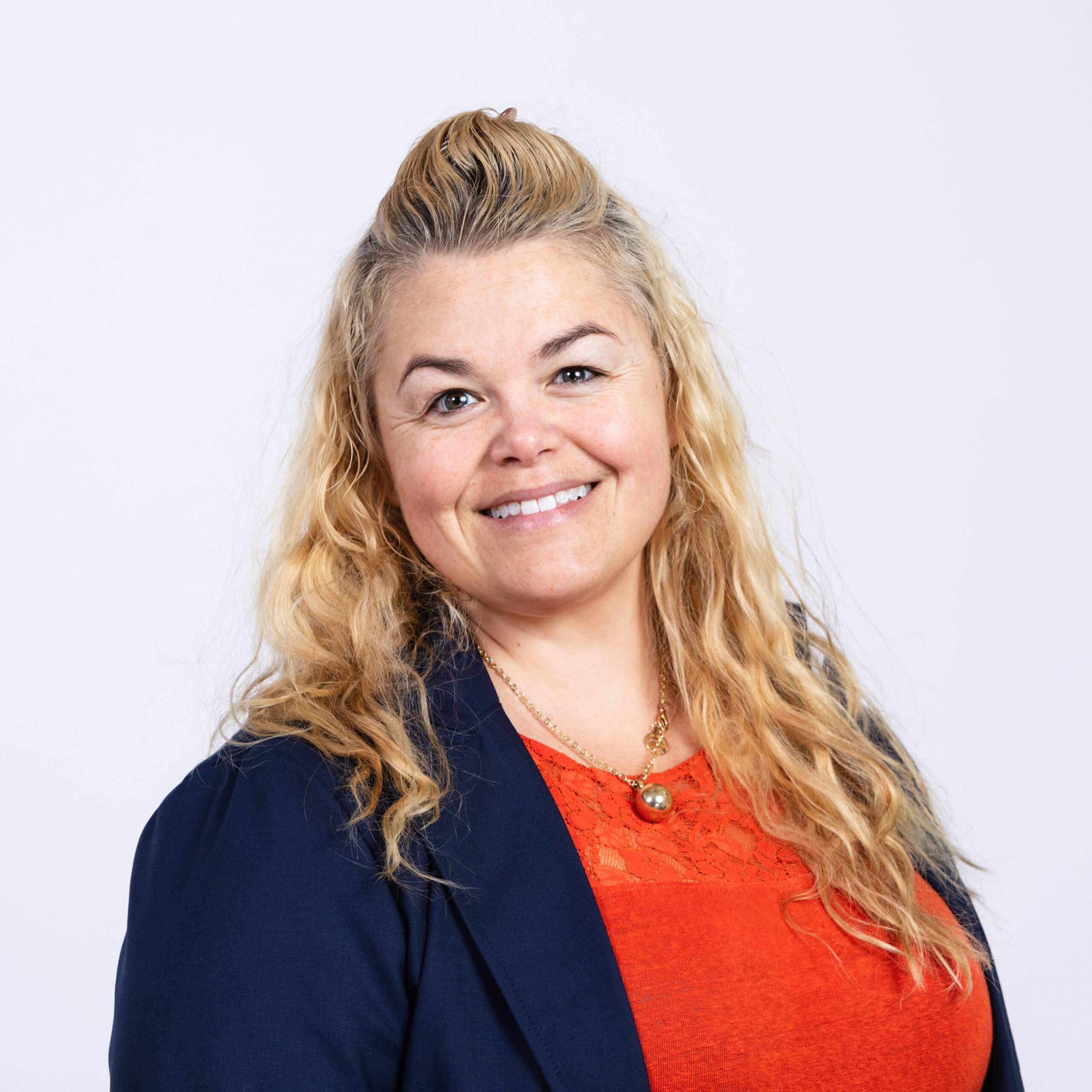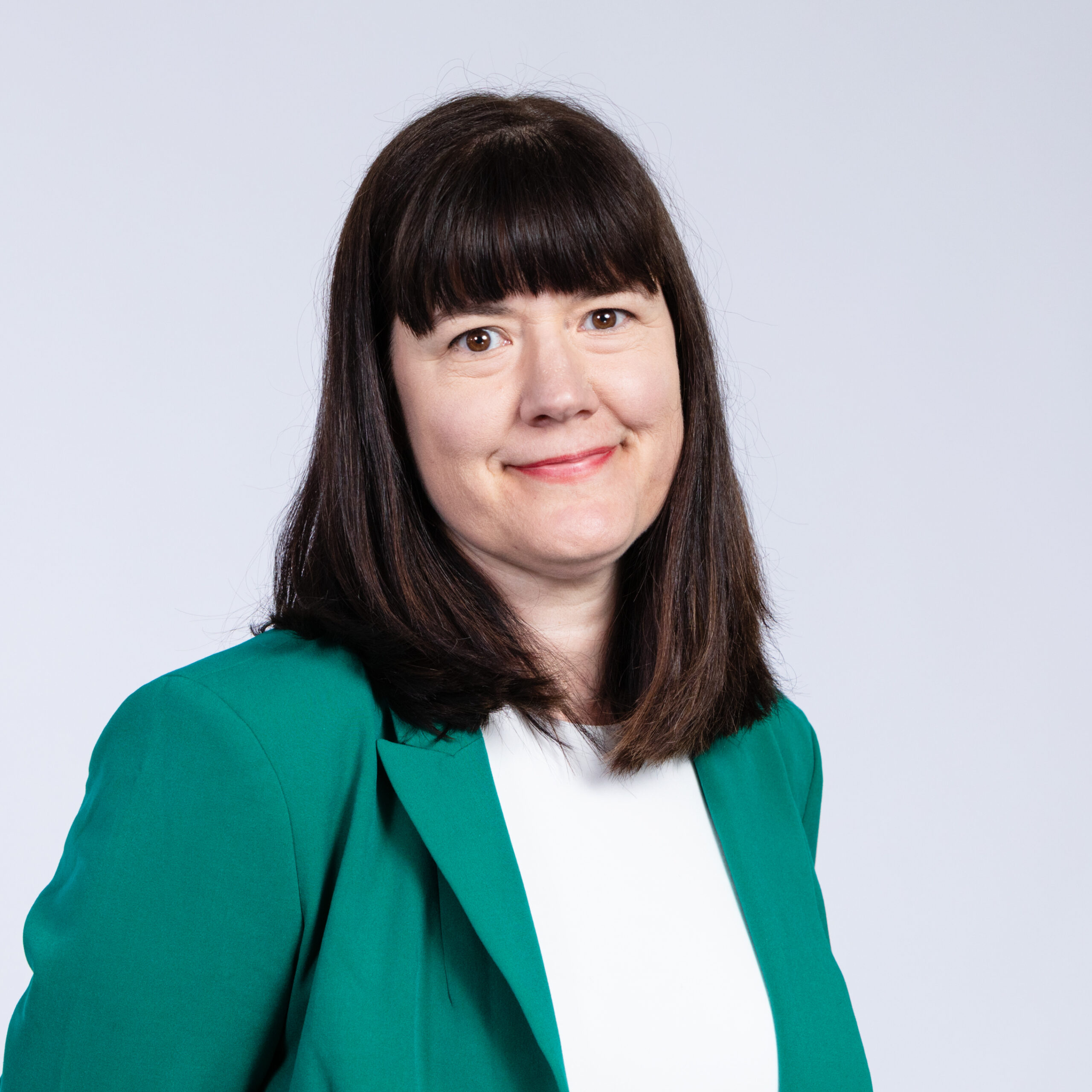Welcome to our newest blog post, dedicated to exploring the unique contributions and perspectives of women leaders in the transportation industry. Highlighting their notable successes, we take a close look at the vital role women play in this dynamic sector. For a fresh perspective on the world of transportation, where women's experiences play a central role in its transformation.
Discover :
- Valérie Proulx-Brisson - Road engineering
- Isabelle Charpentier - Mobility and transportation planning
- Martine Beaulieu - Bridges and engineering structures
- Claudie-Anne Boulich - Traffic management
- Julie Poirier - Maritime and Port
1. What prompted you to pursue a career in engineering? Were there any specific experiences or role models that influenced your decision?

Julie
For me, my career in civil engineering was initiated by my grandfather's influence during my architecture studies in college. My grandfather, a renowned contractor in residential development, frequently involved me in his projects, where I would assist. He quickly recognized my problem-solving skills and my passion for the action and logistics of construction site work. Observing my potential to take on technical challenges, he advised me to pursue a career in engineering. I followed this advice and have never regretted my choice.
2. In a male-dominated field like engineering, did you face any particular challenges and how did you overcome them?
Isabelle
After more than 25 years in the civil engineering industry as a woman, there's no denying that I've encountered a number of challenges. Among them, the challenge of earning respect in a largely male environment is still prevalent. I still remember my first jobsite in 1998, when the head supervisor, seeking to be humorous, symbolically handed me a broom to clean the trailer. Workers' whistling and sometimes rude or sexist remarks have also made for tricky situations. In such circumstances, it's imperative to be sharp, stand by our convictions and fight back with confidence.
Challenges are not limited to our professional environment, but also encompass intrinsic aspects. As women, we sometimes tend to wait for the right moment to express our point of view, or to seek out the full set of skills before applying for challenging positions or roles. So, I set out to work on this facet of my personality, regularly reminding myself of my father's words to my sisters and me, "There's a piece of cake for you, but if you don't take it, someone else will instead." The challenge is to take your place while respecting your own values.
3. Can you tell us about a project or achievement of which you are particularly proud in your career as an engineer? What were the main challenges and how did you overcome them?

Claudie-Anne
I'm proud of my contribution to the development of traffic maintenance, now essential for road projects in built-up areas. At the start of my career, this discipline was often associated with signage, with the widespread idea that it takes an engineer to put up signs. Thirty years ago, the use of traffic principles was less widespread. Raising awareness among design teams from different disciplines has been fruitful, instilling the reflex to adjust designs for viable cohabitation with the environment from the earliest stages of a project. I'm also proud to note that an impressive number of engineers have made traffic maintenance their specialty, without whom coordination of the various contractors' constraints would be impossible.
The main challenge is in the clients' resistance to imposing a more restrictive framework on contractors in the plans and specifications. To persuade them, I highlighted the impact of citizens' complaints during the construction phase, demonstrating that the cost of adjusting pending configurations exceeded the design costs incurred during the preparation of plans and specifications. Achieved without community support, the change required the crucial support of influential contractors. Highlighting the advantages of a pre-determined phasing canvas during tender preparation dispelled any reluctance, confirmed by a successful trial on the initial Highway 15 slab project.
4. How do you think diversity and inclusion contribute to innovation in engineering, and what steps can be taken to encourage more women to enter and thrive in this field?
Martine
Integrating diversity and inclusion needs to be embedded in the teamwork culture. In an environment that fosters these values, diverse viewpoints and approaches are welcomed. This open-minded approach gives every team member the opportunity to be heard and considered, creating a breeding ground for the best ideas and innovation. Our women's ability to listen is an asset, helping them to flourish in a context conducive to innovation.
5. What advice would you give to young women considering a career in engineering, based on your own experience and background?

Valérie
I would advise young women not to let themselves be influenced by certain persistent prejudices in the industry. In engineering, particularly in the transport sector, the number of women is increasing at various hierarchical levels. Throughout my career, I have rarely felt discriminated against because of my gender. It's essential to take your place and interact actively with your colleagues. Taking advantage of opportunities, whether through training, mentoring or otherwise, is also invaluable advice.
6. In your opinion, what are the most exciting developments or trends in your specific field of engineering at the moment, and how do you think they will shape the future of the industry?
Julie
The evolution towards larger cargo ships requires considerable adjustments in ports. These adaptations create stimulating challenges for modifying existing infrastructures, notably by deepening and protecting structures to accommodate the increased draught of these vessels. A particularly exciting trend is the desire of port facility owners to carry out expansion or modification projects without interrupting their services, thus creating significant logistical challenges. The key is to be imaginative and proactive in anticipating the site management and operational issues associated with the sequence of works, while proposing solutions adapted to each situation.
7. As a woman in engineering, have you found mentoring to be an important factor in your professional development? How has mentoring played a role in your career?
Claudie-Anne
I consider mentoring to have been a crucial element in my career in engineering, particularly in a male-dominated environment. It's essential to have guides who help you understand the impact of issues on your career. The mentors with whom I was able to have open exchanges played a significant role. Throughout my career, I've been lucky enough to have several mentors who have acted as career facilitators. They invested time in introducing me to influential people in the field, enabling me to put forward points of view that diverged somewhat from the norm at the time. I'm deeply grateful to them for helping me find a work environment aligned with my vision, which in return enabled me to reach my full potential.
I met my first mentor at university, Pierre, who sparked a passion for traffic. Later, Michael introduced me to the world of site signage. These two encounters were decisive in establishing a meaningful link and building a career project. Many thanks to these two mentors for their positive influence.
8. How do you balance your professional and private life in a demanding field like engineering? Are there any specific strategies or practices that have helped you maintain a good work-life balance?

Isabelle
The best practice is to cultivate self-respect and a clear understanding of our own limits, paying particular attention to our physical and mental well-being. When my children were younger, I took the initiative of reducing my weekly working hours to reduce stress and additional pressure. This approach, which consisted in not putting extra pressure on myself and recognizing the possibility of doing a little less, greatly contributed to balancing my time and energy more effectively, thus enabling a more harmonious reconciliation between my personal and professional lives.
9. Have you encountered any misconceptions or stereotypes about women in the engineering consulting field, and how do you address or challenge these stereotypes in your workplace?
Valérie
Since I started my career, I've been lucky enough to join a department where the female presence was already established, thus eliminating stereotypes about women. However, there have been times when I've had to deal with people from outside the company who don't approach me directly, preferring a male colleague instead. When faced with such situations, the best strategy is to respond directly to the interlocutor, or to supplement the colleague's answer, in order to demonstrate our ability to respond as effectively as our male counterparts.
10. As technology continues to evolve rapidly, what do you see as the crucial skills for the next generation of women entering the engineering workforce, and how can educational institutions and industry better prepare them to meet the challenges ahead?

Martine
In my view, the crucial skills that the next generation will need to master are adaptability and the ability to exercise professional judgment. In a context where artificial intelligence will occupy a prominent place, it will be essential for future female engineers to possess a sharp critical sense and be able to communicate their ideas clearly in an ever-changing environment.